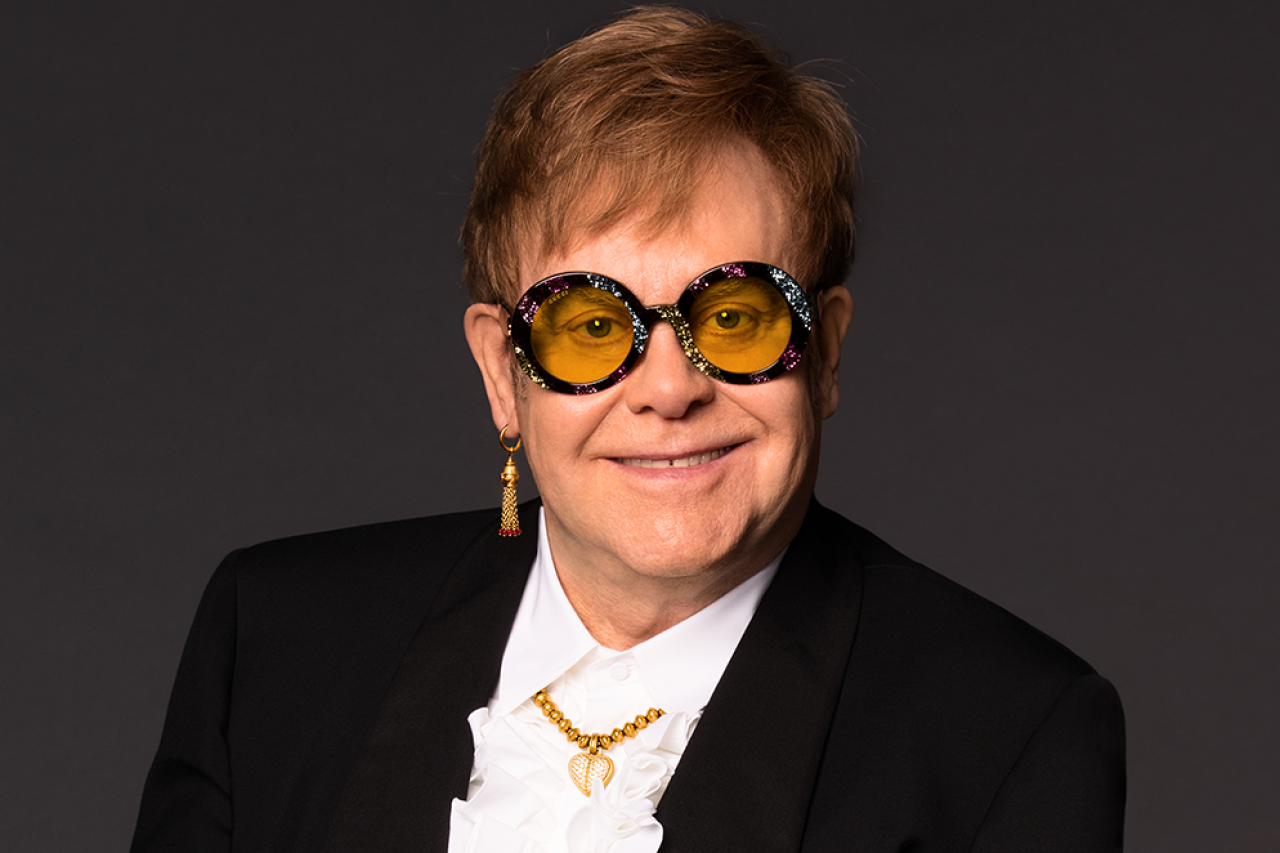The chapel glowed softly under hundreds of flickering candles. Outside, a heavy fog draped the California hills as the world prepared to let go of one of its greatest musical architects: Brian Wilson. Inside, there was no press, no camera flashes, only a hushed room filled with legends who had no words left.
Among them sat Elton John, motionless, grief etched into the lines of his face. When it was time, he rose quietly, walking alone toward the grand piano at the front. He rested one trembling hand on its smooth surface, collecting himself. There was no need for introductions; every soul in the chapel knew why he was there.
He glanced across the gathered mourners — Paul McCartney, eyes cast down, frozen; Stevie Wonder, silently wiping away tears. Elton’s voice broke the silence, soft as a breath:
“He was the greatest influence on my songwriting. A true genius, a pioneer. I loved him.”
He adjusted the piano bench and exhaled, his fingers hovering briefly before they fell onto the keys. No grand gesture, no announcement — just the opening notes of “Someone Saved My Life Tonight,” spilling into the stillness like gentle rain.
This was more than a song; it was a moment suspended in time. Years earlier, in a cramped London dressing room, Brian Wilson had once sung that song back to Elton, a moment of quiet validation between giants. Now, Elton was returning that gift, pouring his sorrow, respect, and gratitude into every note.
Each chord carried unspoken weight, each lyric felt like a whispered prayer. “You almost had your hooks in me, didn’t you dear?” cut through the chapel with piercing clarity. At one point, emotion caught in Elton’s throat, forcing him to pause. The room held its breath until he found the strength to continue.
By the final verse, tears streamed down faces across the chapel. These weren’t just artists in mourning; they were peers and friends, gathered to honor a soul who had changed them all. This was not a staged tribute — it was something raw, holy, and real.
As the last note dissolved into silence, Elton lifted his eyes. There was no bow, no acknowledgment of applause — there was none to give. Instead, he formed two silent words with his lips: “Thank you.” Then, slowly, he stepped away from the piano, walked down the aisle, and slipped quietly out of the chapel.
No one moved to speak or clap. No one dared break the sacredness of what had just happened.
Later, Paul McCartney would call it “the most honest moment in music I’ve ever witnessed.” Stevie Wonder, visibly shaken, managed only, “That wasn’t a performance. That was love.”
In that tender, haunting farewell, Elton John showed the world what music is meant to be: not charts, not glory, but the language that speaks when words cannot.
And somewhere, beyond the veil, perhaps Brian Wilson heard it — and smiled.
https://www.facebook.com/photo/?fbid=122126045498834268&set=a.122106850796834268
